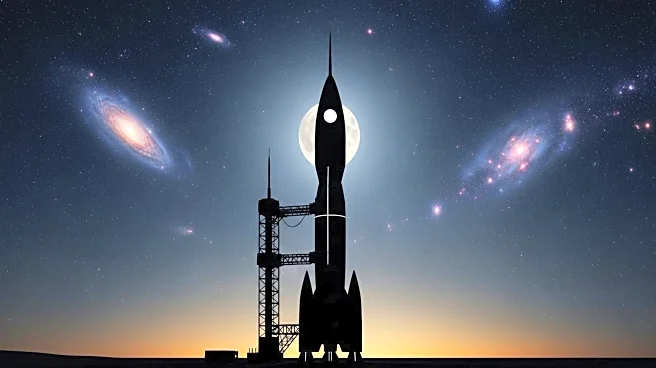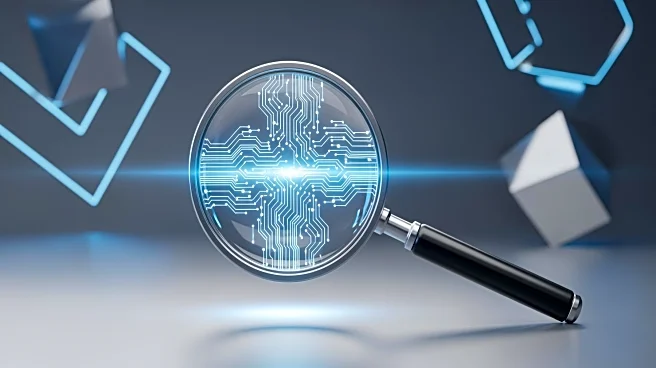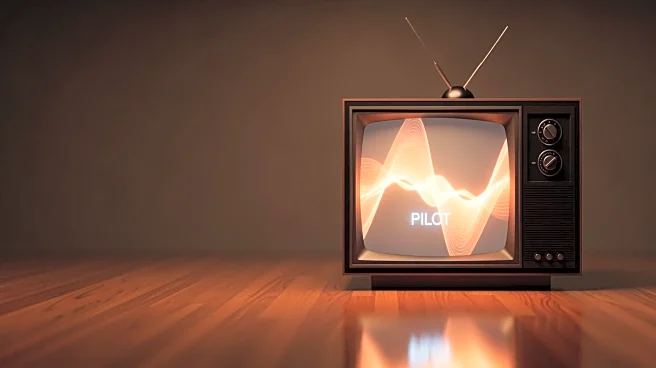What's Happening?
Roscosmos, Russia's state space agency, is preparing for the test launch of its Soyuz-5 rocket in December. The Soyuz-5, also known as Irtysh, is a medium-class launch vehicle developed over the past decade. It is equipped with RD-171MV engines and can carry a payload of approximately 17 tons. The test launch is significant for Roscosmos, which has faced financial difficulties since Russia's invasion of Ukraine in February 2022. The agency lost 180 billion rubles and plans to sell non-core assets to support its operations. The Soyuz-5 is part of Russia's efforts to maintain its space capabilities despite severed ties with the European Space Agency and the loss of the Kourou launch site in French Guiana.
Why It's Important?
The successful launch of the Soyuz-5 rocket is crucial for Russia's space ambitions, especially as it seeks to maintain its presence in the global space industry. The development of the Soyuz-5 and future projects like the Soyuz-7, a reusable methane-fueled rocket, are part of Russia's strategy to compete with other space-faring nations, including the U.S. and China. The geopolitical implications are significant, as Russia's space program has been impacted by international sanctions and the loss of partnerships. The ability to launch from Kazakhstan's Baikonur Cosmodrome is vital for Russia's continued space operations and its efforts to attract foreign investment.
What's Next?
Roscosmos is expected to proceed with the Soyuz-5 test launch in December, with further developments anticipated in the coming years. The agency is also working on the Soyuz-7, which aims to be a cost-effective and reusable rocket, with a projected completion by 2030. The success of these projects could bolster Russia's position in the space industry and potentially lead to new international collaborations. However, ongoing financial challenges and geopolitical tensions may affect the timeline and scope of these initiatives.
Beyond the Headlines
The shift in Russia's space strategy highlights the broader impact of geopolitical conflicts on scientific collaboration and technological advancement. The severed ties with the European Space Agency underscore the challenges faced by countries in maintaining international partnerships amid political disputes. Additionally, the focus on developing reusable rockets reflects a global trend towards more sustainable and cost-effective space exploration methods.










